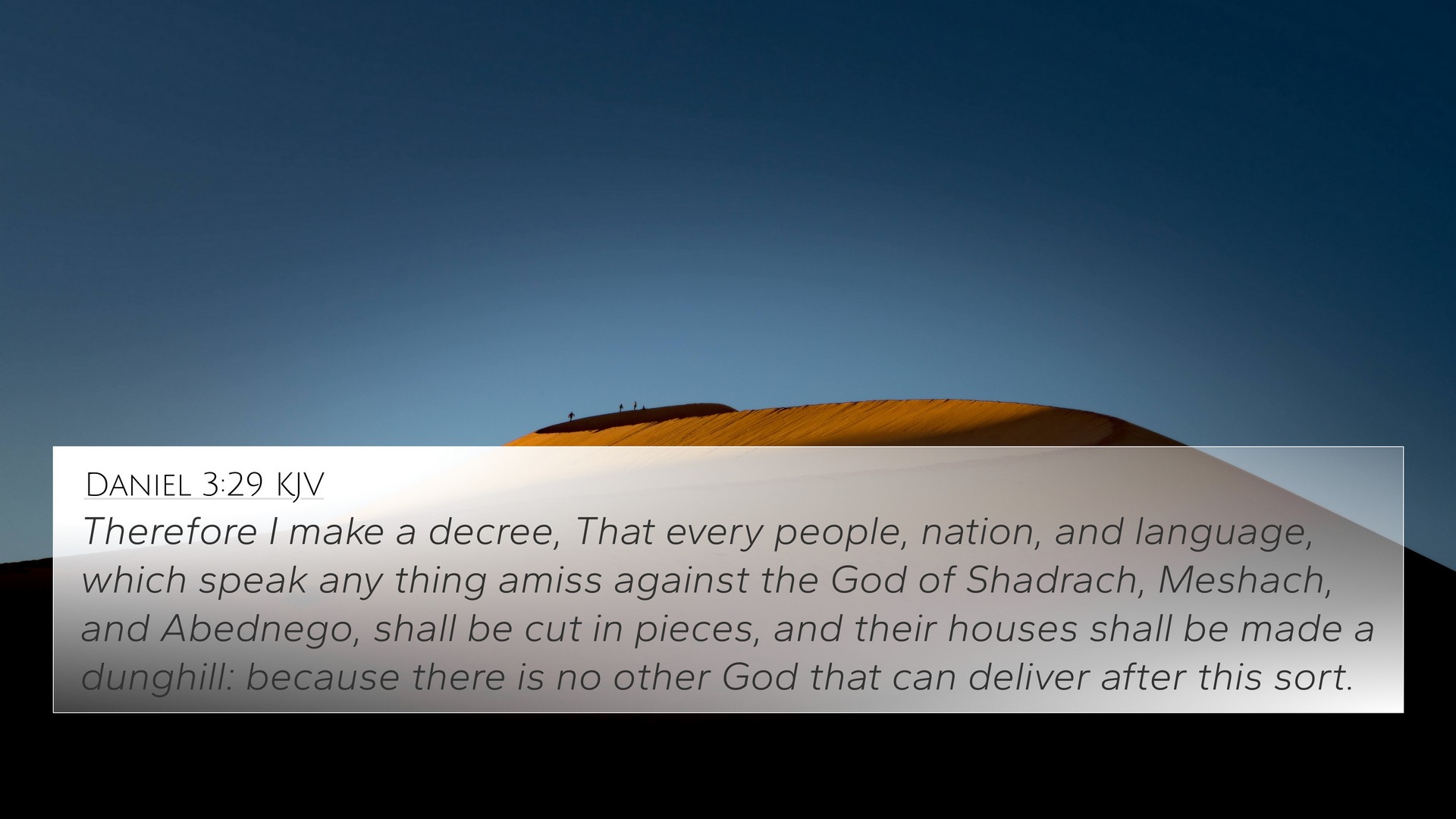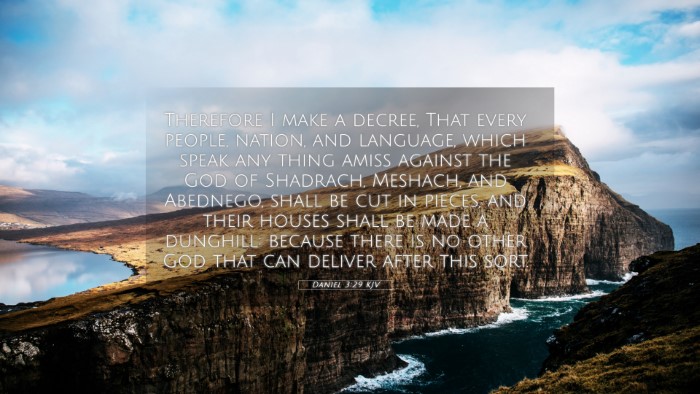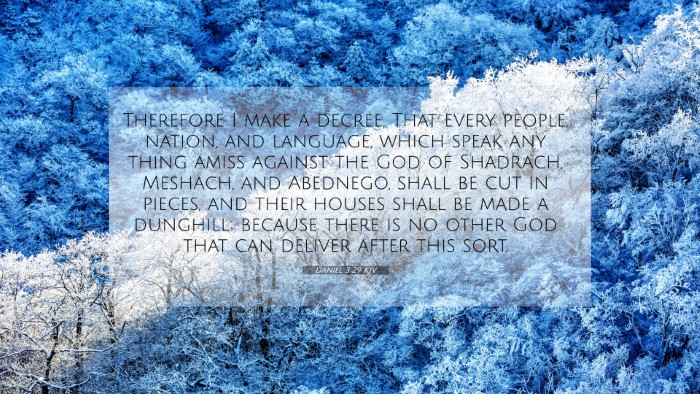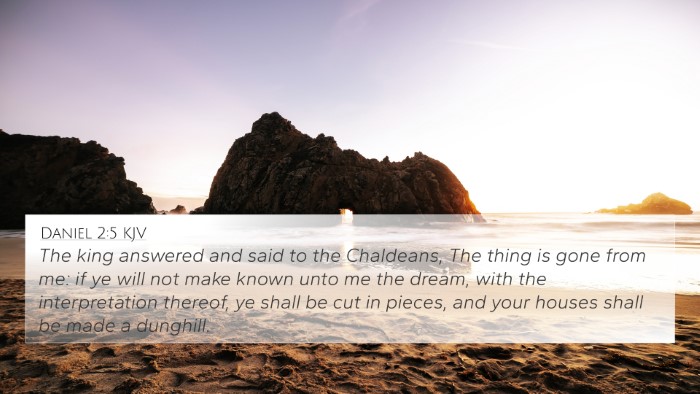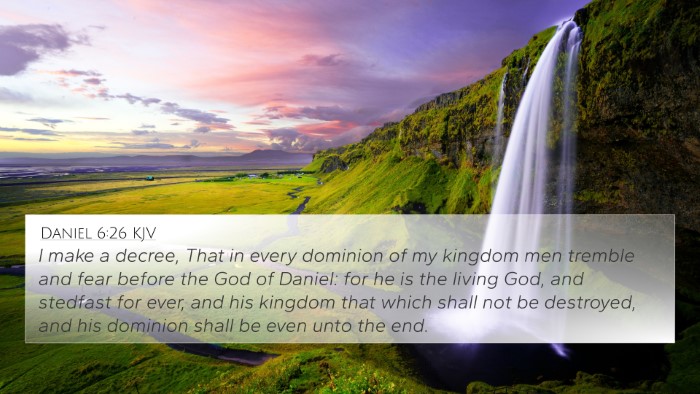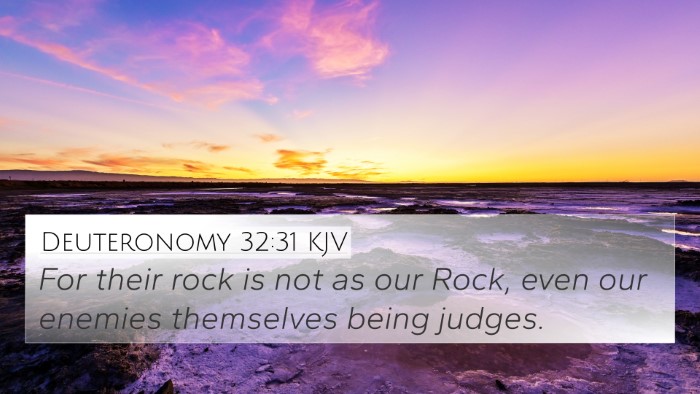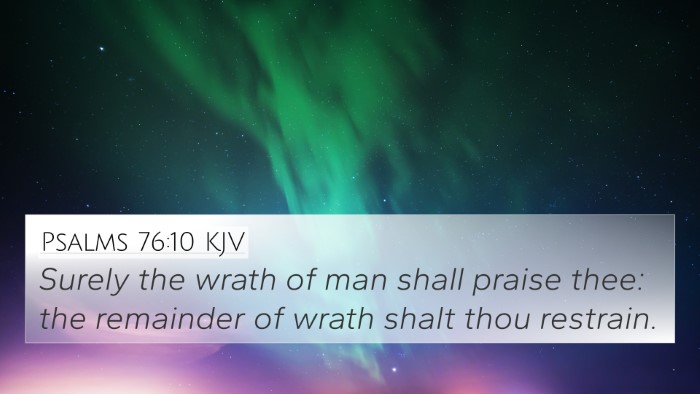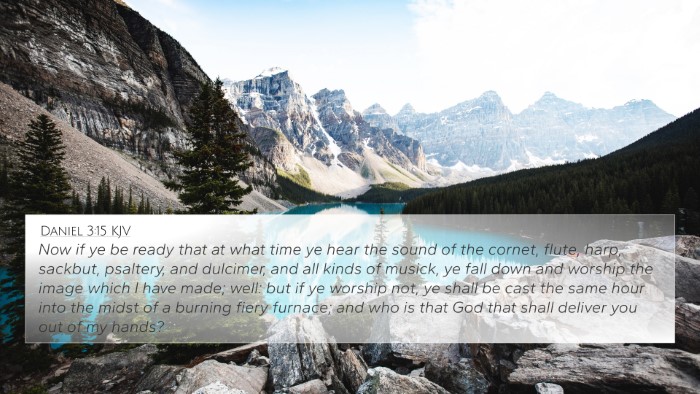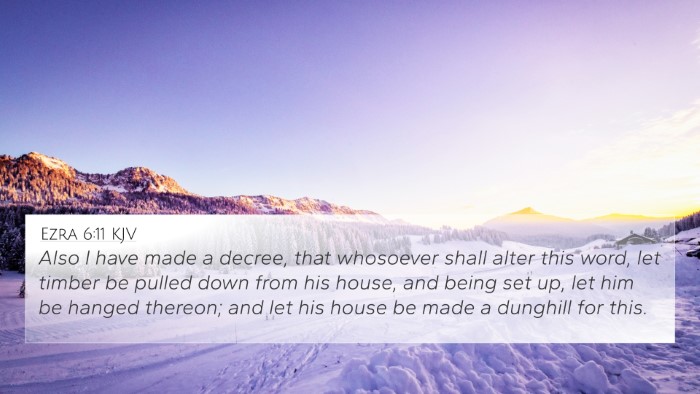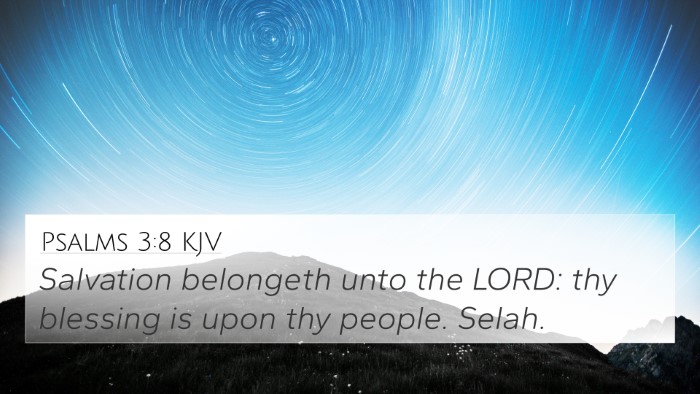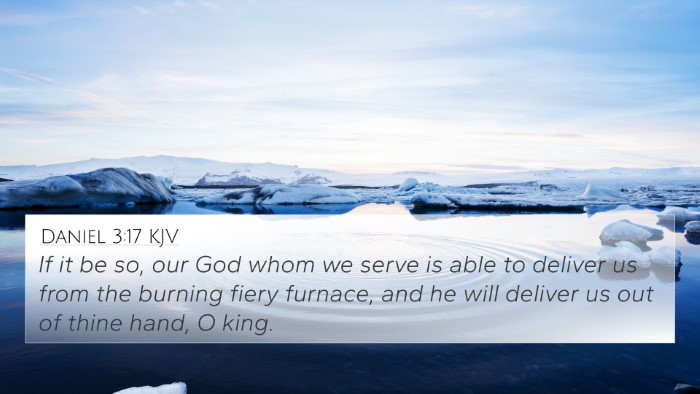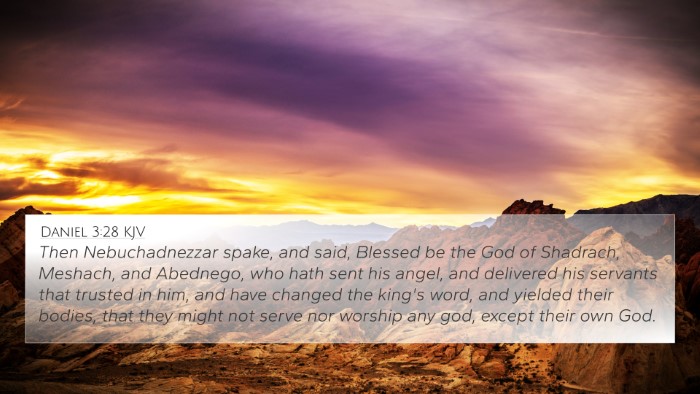Bible Verse Meaning: Daniel 3:29
Daniel 3:29 states, "Therefore I make a decree, That every people, nation, and language, which speak any thing amiss against the God of Shadrach, Meshach, and Abednego, shall be cut in pieces, and their houses shall be made a dunghill: because there is no other God that can deliver after this sort." This verse highlights the king's decree following the miraculous deliverance of Shadrach, Meshach, and Abednego from the fiery furnace.
Summary of Insights from Public Domain Commentaries
The interpretation of Daniel 3:29 can be understood better when analyzed through the insights of renowned scholars such as Matthew Henry, Albert Barnes, and Adam Clarke.
Matthew Henry's Commentary
Matthew Henry emphasizes the authority of God demonstrated through the miraculous event. He notes that Nebuchadnezzar, after witnessing the power of the True God, reacts by issuing a decree that reflects a complete reversal of his previous idolatrous stance. Henry highlights that this decree serves as a foreshadowing of the ultimate acknowledgment of God's sovereignty by all nations, as indicated in Philippians 2:10.
Albert Barnes' Commentary
Albert Barnes elaborates on the implications of Nebuchadnezzar's command. He views it as a significant moment where the king recognizes the supremacy of the God of Israel, distinguishing Him as the only God capable of performing such wonders. Barnes underscores the serious consequences that were laid out in Nebuchadnezzar's decree, showcasing the king’s determination to suppress any blasphemy against this God, thereby establishing a parallel to the moral and civil laws observed in societies following suit.
Adam Clarke's Commentary
According to Adam Clarke, this decree embodies the depth of Nebuchadnezzar’s transformation. Clarke stresses that the punishment meted out against those who blaspheme the God of Shadrach, Meshach, and Abednego is harsh, reflecting an ancient Near Eastern context of governance where the king possesses ultimate authority. He also connects this act to broader themes within the Biblical narrative, where God proves His power against false gods, a theme commonly explored throughout the Scriptures.
Key Themes in Daniel 3:29
- Divine Sovereignty: The remarkable deliverance of the three men illustrates God's control over earthly kingdoms.
- Idolatry and Blasphemy: The verse addresses the seriousness of speaking against God, linking it to severe consequences.
- Transformation of Hearts: It shows how witnessing God's power can lead to a drastic change in belief and policy, as seen in Nebuchadnezzar's heart.
- Intercessory Power: The protection of God's faithful servants highlights the intercession and power available to believers.
Cross-references to Daniel 3:29
This verse resonates with various other scriptures illustrating similar themes of divine power and national recognition of God:
- Philippians 2:9-11: Every knee shall bow to the name of Jesus, showing universal acknowledgement of God's authority.
- Exodus 20:7: Command against taking the Lord's name in vain, leading to a call for reverence towards God.
- Psalm 86:8-10: There is none like God among the gods, reinforcing His exclusivity and power.
- Isaiah 44:6: Declares God as the first and the last, emphasizing His eternal authority.
- Acts 4:12: Salvation is found in no one else, aligning with the theme of God's unique power to save.
- Revelation 19:6: The proclamation of God's reign, echoing the acknowledgment by nations of His sovereignty.
- Deuteronomy 32:39: God is the one who brings death and gives life, asserting His supremacy over all.
Conclusion
Daniel 3:29 serves as a profound declaration of God's unmatched power and the consequences that arise from recognition or denial of that power. The scholarly commentaries enrich our understanding of this verse, encouraging deeper reflection on the dynamics of faith and authority. By exploring related scripture and the overarching themes of divine sovereignty and moral integrity, we can encounter a richer theological framework that continues to resonate through both Old and New Testament texts.
Tools for Further Study
For deeper exploration, individuals may utilize various tools for Bible cross-referencing:
- Bible concordance: To find direct references and similar themes.
- Bible cross-reference guide: A systematic approach to study interconnections between verses.
- Cross-reference Bible study: Methods useful for thematic studies.
- Bible reference resources: Comprehensive materials to aid in the study of scripture connections.
